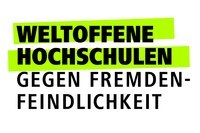Direction:
Prof. Dr. C. Quaiser-Pohl und apl. Prof. Dr. M. Endepohls-Ulpe
Background and Objectives:
Written language learning with literary guidelines and reading motivation in primary school Educational language is a language that is much more complex than everyday language. Mastering it is a central prerequisite for successful participation in education. This is the point of departure for the present research project, which focuses on the importance of implicit learning processes for the acquisition of complex written language structures. Instead of training specific linguistic structures, the project focuses on the repeated reading aloud of literary-aesthetically sophisticated picture books as well as on oral and written forms of follow-up communication. The starting point is the literary dimension of the books, the immersion in narrative worlds, which are offered to the children in the sense of 'listener-activating reading aloud' (Spinner). Effects of this didactic approach on various aspects of written language learning (e.g. vocabulary, syntax) and their significance in the context of reading motivation are examined in three sub-studies.
funded by: Graduiertenakademie Bildung - Mensch - Umwelt (Graduate Academy Education - People - Environment)
Duration: 1.3.2016 - 31.12.2021
Subproject 1: "Literacy learning in the context of picture books in rhymed and non-rhymed language - An intervention study in grade 3"
The acquisition of written language structures is strongly dependent on how much experience the children have with this form of language, which is clearly distinguishable from everyday language. Following the so-called contrast hypothesis, which states that the greater the perceived contrast between oral and written language, the greater the attention paid to written language structures during acquisition, a controlled intervention will be used to investigate the extent to which the strong formality of rhymed language challenges the acquisition of conceptually written language structures in a special way. For this purpose, three classes (n= 60 children) will be read picture books with rhymed language and given written and oral follow-up tasks. Three classes do the same with picture books without rhyming language; a control group of three classes (n=60) goes through a non-linguistic didactic programme of comparable scope and type. In this respect, three questions arise that are to be investigated in subprojects 1a and 1b with different evaluation focuses:
How do children deal with the conceptually written language structures of the default in their own productions? To what extent does the handling of written language structures differ between classes that have worked on rhymed picture books and those that have worked with non-rhymed picture books?(1b)
What effects does this kind of interaction with literature have on the children's written-language and social-cognitive skills? (1a)
Can differential progressions be shown with regard to the use of written language structures and the associated learning processes? (1a and 1b)
Sub-project 1a: Quantitatively oriented evaluation approach
Direction: Prof. Dr. C. Quaiser-Pohl
The children's development in the area of syntax and vocabulary, but also in the area of social-cognitive skills such as perspective-taking, which are central to dealing with literature, will be examined quantitatively and methodically. For this purpose, the constructs of interest will be recorded with the help of standardised test procedures (reading and writing tests, language development tests, perspective-taking tests) but also with self-developed procedures (e.g. on literary language use). These are given twice to all three groups in a pre-post design. In addition, the children's language and educational background is collected and checked.
Sub-project 1b: Qualitatively oriented evaluation approach
Direction: Prof. Dr. D. Merklinger (Institute for Primary School Pedagogy)
The use of written language structures will be analysed in terms of content in the children's products. In addition, it will be examined how the children use certain structures of written language and also literary means offered by the specifications in their own productions. Against the background of the results of the test procedures from sub-study 1a, individual learning developments of children with different starting points can also be described more precisely in qualitative terms, who show various gains in the areas of syntax and vocabulary. On the basis of the children's products, it is possible to reconstruct - on the basis of the data of children with great learning gains - which handling of the language structures of the specifications can be conducive to learning for children's approaches to writing.
Sub-project 2: "Development of boys' and girls' reading motivation in primary school".
Direction: Prof. Dr. M. Endepohls-Ulpe and Madeleine Stein, M. Ed.
Within the framework of the third sub-project, a questionnaire survey will be used to evaluate the impact of intervention measures for dealing with literary guidelines on reading motivation. In addition, the significance of various variables related to the development and maintenance of reading motivation in boys and girls will be examined in an extended survey. It is undisputed in research that reading motivation, defined simply as the extent of the desire to read and the frequently recurring intention to do so, is a central condition of reading competence. A high reading motivation leads to better reading competence through increased performance of the reading activity, which in turn has a positive effect on the reading self-concept and reading motivation. The gender differences in reading literacy in favour of girls found in comparative school performance studies of older pupils are attributed to the higher intrinsic reading motivation of girls already at primary school age, but also associated with gender-typical differences in interests and preferences for certain genres (e.g. fiction vs. comics)... The reasons for this have not yet been sufficiently clarified in research. Against the background of the present state of research, this is to be done within the framework of the study on the basis of a differentiated motivation-theoretical concept.





